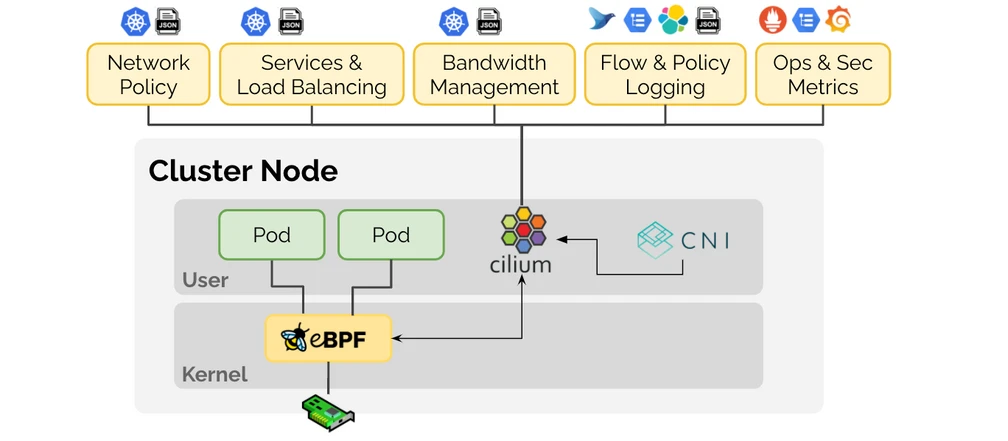eBPF Overview
eBPF, or extended Berkeley Packet Filter, is a highly efficient and versatile technology that allows you to write and load small programs into the Linux kernel. These programs can be used to perform a variety of tasks, such as filtering network traffic or monitoring system events, all while being lightweight and fast.
In the context of Kubernetes CNI (Container Networking Interface), eBPF can be used to implement network policies and security features for container workloads. By using eBPF-based CNI plugins, network traffic between containers can be inspected and filtered according to predefined rules, such as allow or deny traffic from specific IP addresses or ports. This can help enforce security policies, such as preventing unauthorized access to sensitive resources or blocking malicious network traffic.
Some key details of using eBPF for Kubernetes CNI include:
-
eBPF programs can be written in multiple programming languages, including C, Python, and Go.
-
eBPF programs are loaded and executed inside the kernel, which makes them fast and efficient.
-
eBPF-based CNI plugins can be used alongside other Kubernetes network plugins, such as Calico or Flannel.
-
eBPF-based CNI plugins can support various network topologies, such as overlay networks and host networks.
-
eBPF programs can also be used for network tracing and monitoring, allowing you to collect detailed performance and usage metrics for your Kubernetes network.
eBPF is a powerful technology that can enhance the security and performance of your Kubernetes network. By using eBPF-based CNI plugins, you can implement fine-grained network policies and gain deep insights into your network’s behavior.
Additional Resources¶
Created : 7 mai 2023
